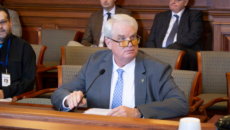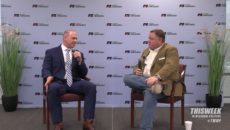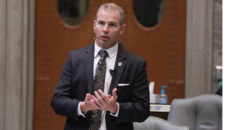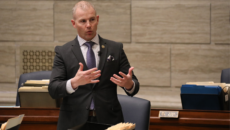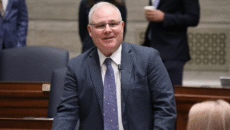JEFFERSON CITY, Mo. – With the adjournment of the Senate Thursday afternoon, the initial deadline to pass and sign a law to comply with a settlement agreement between Attorney General Chris Koster’s office and the tobacco companies named in the Master Settlement Agreement (MSA) is set to pass Friday, April 15. The Senate will be out of session until Monday, April 18.
Now, the question becomes whether or not that deadline matters, and whether or not the General Assembly will act before the final June 3 deadline.

SB 1096, sponsored by Sen. Bob Dixon, R-Springfield, and co-sponsored Sen. Joe Keaveny, D-St. Louis, would need to be enshrined in statute by April 15. The legislation would have changed the formula to determine which tobacco product manufacturers would have to pay into an escrow used by the state to pay for its claims against large tobacco manufacturers in the future, and specifically, it would have put more small tobacco companies into that formula.
Attorney General Chris Koster had reached a settlement with the larger tobacco companies to resolve a dispute over 12 years of annual payments to the state. The settlement, however, was contingent on passing SB 1096 by a certain date, and the failure to pass the settlement may mean that Missouri will not receive additional revenue annually that it may have received otherwise. Missouri would also recoup revenue lost after the Non-Participating Members (NPM) Adjustment Arbitration.
“It’s about $50 million of revenue that would be recouped that could be used for a number of things that are severely lacking as far as funding goes in our state budget,” Dixon said.
The bill passed out of committee and was placed on the informal calendar for perfection April 14, yet Dixon believes the bill can still be heard and have its desired impact.
“I don’t really view the deadline as a hard deadline,” he said. “In my discussions with [Koster], it’s not a hard deadline as much as it is an urgency and the need to underscore that urgency.”
Nanci Gonder, the communications director for Koster, also clarified that the April 15 deadline was more about when the money would come in rather than if. By passing the law before April 15, the extra $50 million would have come with this year’s annual payment, but if the law is signed by June 3, the $50 million will come in the April 2017 payment.
Koster took to Twitter to encourage passage on Thursday.
Instead of defending tobacco companies, #moleg should be protecting tax cuts for MO families. Let’s #FixTheLoophole! pic.twitter.com/F3SHt1PRCy
— Chris Koster (@Koster4Missouri) April 14, 2016
Still, some of the bill’s detractors are celebrating.
The failure of the Senate to even move the bill onto the floor for debate before the soft deadline is seen as a win by Ron Leone, the executive director of the Missouri Petroleum Marketers and Convenience Store Association (MPCA). He does not believe there are any “negative ramifications” for not passing the legislation as it will benefit small tobacco producers who did not even exist when the MSA was arbitrated.
“The big tobacco companies [Philip Morris Inc., R. J. Reynolds, Brown & Williamson and Lorillard] entered into a deal because of all of the sins of their past… in terms of misrepresenting their product, not only to government agencies but to the public and health agencies,” he said. “Little tobacco has figured out a way to successfully sell their products and big tobacco is not happy about that. So big tobacco is trying to retroactively have the master settlement agreement apply to little tobacco, even though little tobacco never committed any of those sins.”
The bill is still on the calendar for perfection in the Senate and has just four weeks to make it through the Senate and the House, both places where it is expected to face some strong opposition.
And the legislative and executive branches each have a new deadline to look towards: June 3. The settlement is totally contingent that Gov. Jay Nixon signs the bill by that date.


